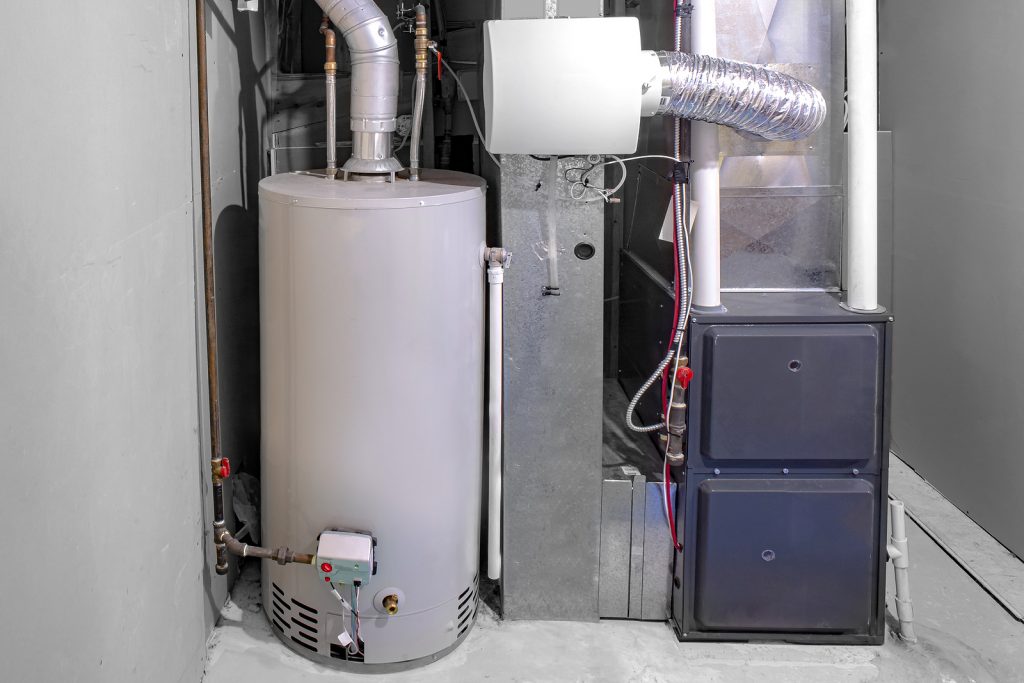When you are regular with furnace maintenance, your family will enjoy a warm and comfortable home all winter. You will also avoid the dangers that can come with a furnace that is not operating correctly. But when you fail to keep up with maintenance, your furnace could put your family in danger by leaking carbon monoxide.

Carbon monoxide is a gas that is odorless and colorless, making it impossible for you to know when there is a leak. It is usually contained within your system’s heat exchanger. From there it goes through the flue pipe before being vented away outside your home.
If you or your family starts to experience symptoms like headaches, dizziness, nausea, confusion, or fainting, it is important to get to fresh air immediately and call for help. In the meantime, if you have neglected your furnace maintenance, the professional team at Baylor Heating, Air Conditioning & Plumbing can help you get your system back on track and prevent any further problems.
Here are four ways you can prevent carbon monoxide leaks from your furnace:
Maintain Your Heating System
The best way to prevent carbon monoxide leaks is to keep up with regular maintenance for your furnace. This means having a professional come out at least once a year to clean, inspect, and make any necessary repairs.
During this service, the technician will look for any cracks or corrosion in your heat exchanger. If they find any damage, they will be able to fix it before it gets worse and causes a carbon monoxide leak. Your technician will also clean any soot or debris from the inside of your furnace. This build-up of soot and debris can cause your heat exchanger to overheat and crack, leading to a carbon monoxide leak.
Poor furnace installation can also lead to carbon monoxide leaks. Make sure you hire a professional to properly install your furnace according to the manufacturer’s instructions.
Install Carbon Monoxide Detectors
Even with regular maintenance, it is still a good idea to have carbon monoxide detectors installed in your home. This will help alert you to any leaks, even if they are small.
Make sure to place the detectors near any potential sources of carbon monoxide, such as your furnace, water heater, or fireplace. You should also have one on each level of your home and in every sleeping area or areas where your family spends much time.
Check them at least once a year to make sure they are working properly. In the event that your carbon monoxide detectors go off, get to fresh air immediately and call for help. Do not try to find the source of the leak or turn off any appliances in your home.
Avoid Poor Airflow
Dirty or clogged air filters are the most common cause of poor airflow. When your furnace has to work harder to push air through a dirty filter, it can overheat and crack the heat exchanger. This will lead to a carbon monoxide leak. Poor airflow can also lead to a total system shutdown.
To prevent this, check your air filter monthly and replace it as needed. If you have pets or someone in your home who suffers from allergies, you may need to replace your filter more often.
Learn And Look Out For Symptoms of Carbon Monoxide Poisoning
It is important to be able to recognize the symptoms of carbon monoxide poisoning. These include headaches, dizziness, nausea, confusion, fatigue, and fainting. If you or your family starts to experience these symptoms, get to fresh air immediately and call for help. You should be more proactive if you notice that these symptoms subside when the affected individual goes outside.
Contact Baylor Heating, Air Conditioning & Plumbing to Schedule Maintenance
If you need to schedule furnace maintenance or you think you may have a carbon monoxide leak, contact Baylor Heating, Air Conditioning & Plumbing at 812.425.8435. Our team of NATE-certified technicians is here to help keep your family safe and comfortable all winter long.


